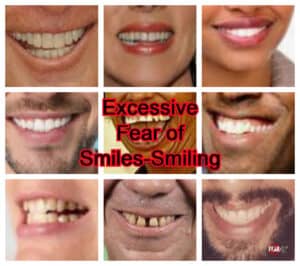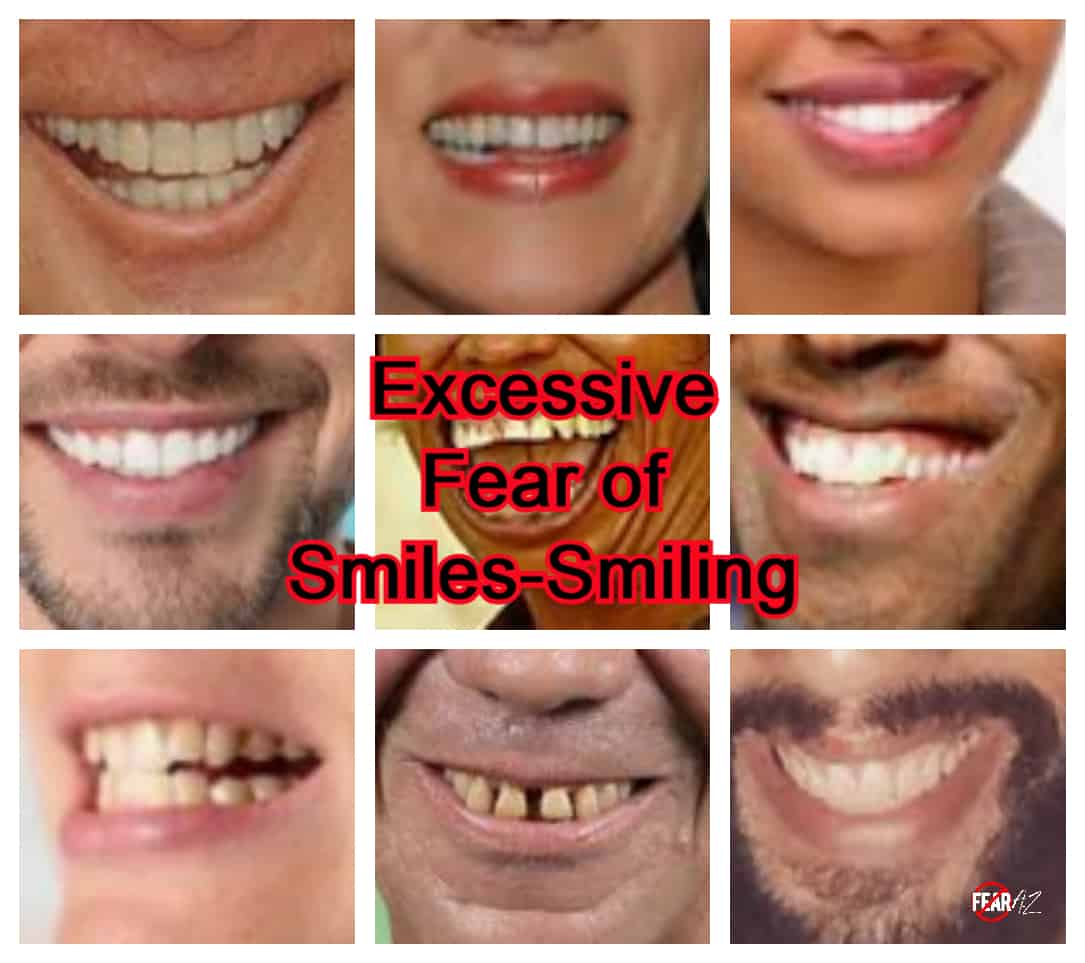Share This Article
Some People Have a Deep Fear of Smiles
Do smiles give you the creeps, make you uneasy, remind you of devious people? Are your eyes always scrutinizing faces to check for the slightest sign of smiles or laughter? Do you fear smiles behind your back?
If yes, you may be suffering from the fear of smiles or smiling– or the fear of smiley faces.
A person suffering from this fear will often find it difficult to explain themselves. Not only do they fear that their phobia may not be real, but they also worry that others might make fun of them or mock them for their phobia.
Because of their nagging fears, it’s natural for people suffering from excessive fear of smiles to keep to themselves and avoid social situations. However, that’s not the best solution. Proper care and treatment can help you recover from this fear and live a fruitful and fulfilling life.
Excessive Fear of Smiles Explained
It is said that a smile can light up a day. But for some, there’s a dark side to that. Smiles become something to avoid.
When a fear of smiles begins to control one’s behavior, that’s when it’s considered a phobia. And the excessive fear of smiles or smiley faces is real for many.
This phobia was discovered in 1996 by German psychoanalyst and psychotherapist Michael Titze. In his papers, Titze observed that his patients were most worried about being laughed at and would scan their environment for signs of ridicule and laughter. He noted that these patients considered themselves ridiculous and often developed psychosomatic disturbances such as lack of sleep.
Given how new the discovery of excessive fear of smiles is, this fear is yet to be included in the Diagnostic and Statistical Manual of Mental Disorders (DSM) and is not recognized in the official list of phobias. However, research on this phobia continues to present notable findings.
A person suffering from the phobia believes that all the laughter they hear is aimed at them. They experience a high amount of shame and anxiety and display social withdrawal, paranoia, sensitivity to offense, and fear of laughing. This often results in very low self-esteem and even antisocial behavior.
The excessive fear of smiles-smiley faces is associated with some clinical conditions like autism spectrum disorder (ASD), borderline personality disorder, and social anxiety disorder. As patients suffering from these clinical issues recognize that they are different, they are always afraid of being mocked and ridiculed and may develop an excessive fear of smiles.

Excessive Fear of Smiles Potential Causes
While the exact cause of an excessive fear of smiles is not known, there are several factors that can contribute to a person developing this phobia.
It could occur if a person had an unhappy childhood without a supportive caregiver, or if, as a child, their opinions and suggestions were not taken seriously. Experiencing bullying in school or even online can also lead to someone developing this phobia.
While it is less probable to develop the fear of smiling in adulthood, it is still possible. If a person went through a traumatic experience of being laughed at, one that they cannot overcome, they may develop a phobia.
A person’s own sense of humor also plays a huge role. For example, if someone is highly social, carefree, and takes comments jokingly, they are less likely to get affected compared to those who are very sensitive to comments and take them very personally.
On the other hand, a person with a history of mental illness is more prone to developing phobias. The slightest of triggers like a passing joke may gradually develop into a phobia.
Fear of Smiles Symptoms
A person suffering from this fear may experience a few or more symptoms depending upon the severity of their phobia.
Physical Symptoms
- Aches and pains
- Headaches
- Breathlessness
- Prickly sensation
- Dry mouth
- Appearing cold and humorless
- Dizziness
- Increased heart rate
- Nausea
- Vomiting
Mental/Emotional Symptoms
- Anxiety
- Panic attacks
- Antisocial behavior
- Feeling of shame
- Feeling of worthlessness
Excessive Fear of Smiles Treatment
There is no one proven treatment for this excessive fear, but there are a few things that can help you recover from your fear of smiles.
Self-Help
When dealing with an irrational fear, self-help can often be your best asset. Most patients recognize that their fears are irrational and working on acknowledging their illogical thought patterns helps them get better.
However, for people with this fear, many genuinely believe that they are being targeted and mocked. For such people, their fears are real and the traditional method of self-help will often be useless.
In such cases, they can work on their self-worth and realize that others’ comments are not their concern. They can try meditation, yoga, deep breathing, and relaxation techniques to calm themselves. These techniques will also help them calmly analyze a situation before reacting.
Professional Help
Reaching out to professionals and letting them properly diagnose and treat you is often the best way to overcome a phobia.
A professional therapist will be able to customize a treatment plan according to the severity of your phobia.
One or more of the following therapies can be used for the treatment for being terrified of smiles or smiling:
- Cognitive behavioral therapy (CBT)
- Exposure therapy
- Mindfulness-based stress reduction (MBSR)
Medications
In rare cases, when the patient is suffering and slow to respond to talk therapy, anti-anxiety or antidepressant drugs may be prescribed.
The drugs are only meant to suppress symptoms and are not a cure for the deep fear of smiles. Their use is discontinued as soon as the patient starts responding to therapy.
Coping with the Fear of Smiles/Smiling
Living with this fear is difficult. For the sufferer, even sitting in a room full of people can be a challenge. Each time someone laughs, it’s like they are being personally attacked. Hence, they may skip school and only take jobs where there are very few employees.
The excessive fear of smiles is a severe condition, so don’t try to “live with it.”
Reach out to family, friends, and colleagues and let them know what you’re going through. Try self-help techniques and consult a doctor for a complete recovery.
Conclusion
Excessive fear of smiles, the fear of smiles and laughter, can affect both your social and professional life. It can isolate you from others and make you a magnet for many other health issues. If you suspect you’re suffering from this phobia, make sure you reach out to loved ones or professionals so you can learn to overcome your fear and get better as soon as possible.



